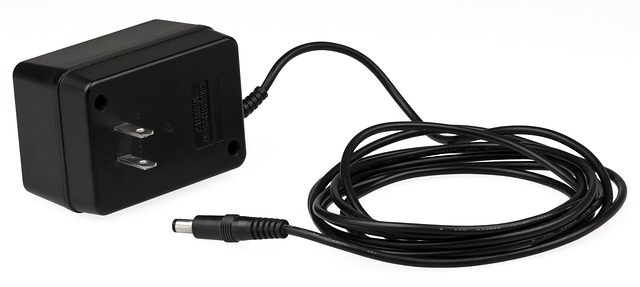Genital warts, caused by HPV, require early detection and treatment. At-home remedies like apple cider vinegar, garlic paste, or tea tree oil offer painless wart removal methods, but efficacy varies. Consulting healthcare professionals is crucial for personalized guidance, especially with persistent or widespread warts. For effective, safe removal, use sterilized tools and follow proper application techniques. Select clinics with strict sanitation and non-invasive procedures for professional treatment.
Genital warts can be an uncomfortable and embarrassing concern, but there are easy ways to treat them at home without pain. This comprehensive guide explores effective home remedies for genital wart removal, focusing on painless methods. We’ll delve into the causes and risks of these common skin growths, revealing natural treatment options using readily available ingredients. Learn safe application techniques and prevention tips to achieve smooth, wart-free skin.
- Understanding Genital Warts: Causes and Risks
- Exploring Home Remedies for Painless Removal
- Common Ingredients for Natural Treatments
- Safe Application Techniques and Prevention Tips
Understanding Genital Warts: Causes and Risks

Genital warts, also known as condyloma acuminata, are common skin growths caused by certain types of human papillomavirus (HPV). They can appear on the external genital areas, including the penis, vagina, or anus, and may cause little to no discomfort. However, it’s essential to understand that while they are usually harmless, these warts pose a risk of developing into more serious health issues over time. HPV is sexually transmitted, and engaging in sexual activity with someone infected can lead to the transmission of the virus, potentially resulting in genital warts.
The good news is that there are several painless wart removal methods available for at-home treatment, such as using Epsom salt or certain natural remedies. An epsom wart clinic might also offer professional options like cryotherapy (freezing) or topicals. It’s crucial to consult a healthcare professional if the warts persist or grow, especially in cases where they cause itching, pain, or bleeding. Remember, early detection and treatment are key to minimizing potential risks associated with genital warts. For those seeking alternative solutions, how to get rid of warts naturally at home is a viable option, but private wart removal London services provide advanced medical treatments for more complex cases.
Exploring Home Remedies for Painless Removal

Many people seeking easy ways to treat genital warts at home often turn to home remedies as a painless wart removal method. This approach is preferred due to its convenience and potential lack of side effects compared to medical treatments. Some effective home remedies include applying apple cider vinegar, garlic paste, or tea tree oil directly to the affected area. These natural ingredients have shown promise in removing warts gently over time.
When considering private wart removal Bristol or even looking into wart removal Liverpool, it’s essential to remember that while at-home treatments can be successful for some, they may not work for everyone. For sensitive areas, specific care is required to avoid irritation or discomfort. Always patch test any home remedy first and consult a healthcare professional if concerns arise regarding safety or efficacy, especially when dealing with persistent or widespread warts.
Common Ingredients for Natural Treatments

Genital warts can be treated at home using various natural ingredients that offer a painless wart removal method. Some commonly used ingredients include apple cider vinegar, which has acidic properties that help destroy the wart and its surrounding cells. Application of aloe vera gel is another popular choice due to its anti-inflammatory and healing properties. It’s known for soothing the affected area and promoting cell regeneration.
Additionally, banana peels have been found effective in removing genital warts. The amino acids and antioxidants present in bananas can help weaken the wart and speed up its disappearance. Other options include vitamin E oil, tea tree oil, and garlic extracts, all of which possess antiviral properties that target the human papillomavirus (HPV) causing warts. When considering at-home treatments, it’s essential to consult with a healthcare professional or visit clinics like Canterbury Wart Clinic, wart removal Bradford, or private wart removal Blackburn for expert advice tailored to your specific needs.
Safe Application Techniques and Prevention Tips

When treating genital warts at home, it’s crucial to employ safe application techniques for effective and painless wart removal methods. Always use sterilized tools or products designed specifically for genital wart treatment to avoid infections. This includes using gloved hands or sterile applicators when applying treatments, ensuring the skin is clean before application, and avoiding touching healthy skin around the affected area. Additionally, never share personal items like towels or razors with others to prevent the spread of the virus.
Prevention is key in managing genital warts. Practicing safe sex by using condoms consistently can help reduce the risk of contracting the HPV virus that causes warts. Maintaining good personal hygiene and keeping the affected area clean also plays a role in minimizing discomfort and preventing complications. If you opt for private wart removal services, such as those offered in Maidstone or Guildford, ensure the facility follows stringent sanitation protocols using non-invasive techniques to ensure safety and comfort.
Genital warts can be a discomforting condition, but there are easy, at-home methods for their painless removal. By understanding the causes and risks, exploring effective home remedies with common natural ingredients, and adopting safe application techniques, you can effectively manage and eliminate these warts. Remember, while these methods offer relief, consulting a healthcare professional is essential for persistent or severe cases to ensure the best outcomes.
